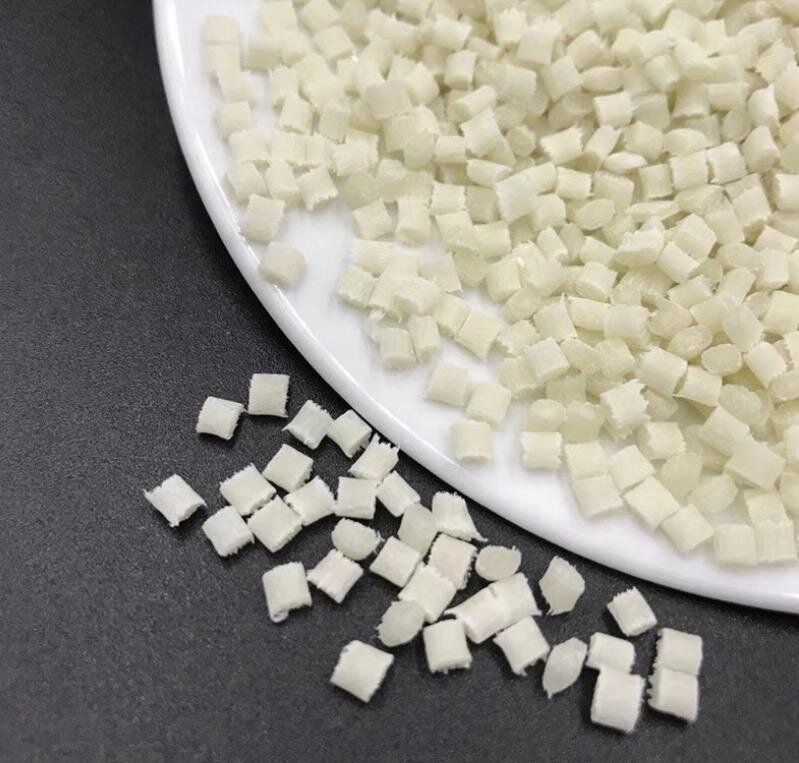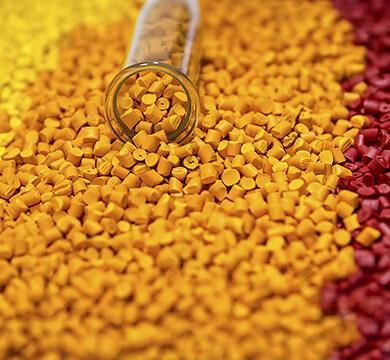Ошибка формата электронной почты
emailCannotEmpty
emailDoesExist
pwdLetterLimtTip
inconsistentPwd
pwdLetterLimtTip
inconsistentPwd

Offer Technical Support and Customized Solutions
The company is committed to creating new and improved plastic materials to meet the evolving demands of the market.

Driving the Future: How PA6 Granules Revolutionize Automotive Parts Manufacturing
Introduction:
The automotive industry is constantly evolving, and the quest for innovation in manufacturing processes and materials is at the forefront. One such groundbreaking material that is transforming automotive parts manufacturing is PA6 (Polyamide 6) granules. This blog post delves into the revolutionary impact of PA6 granules on the automotive industry and how they are driving the future of automotive parts manufacturing.
1.Understanding PA6 Granules:PA6 granules, also known as nylon 6, are a type of thermoplastic resin composed of monomers connected by amide linkages. The molecular structure of PA6 granules provides them with exceptional properties suitable for automotive applications. These granules offer a unique combination of high strength, toughness, and temperature resistance, making them ideal for demanding automotive environments.
PA6 granules can be produced through various processes, including polymerization and solid-state polymerization. The resulting granules are available in different forms, such as pellets or powders, and can be customized to meet specific manufacturing requirements.
2.The Physical Properties of PA6 Granules:PA6 granules possess a range of physical properties that contribute to their effectiveness in automotive parts manufacturing:
a. High Strength: PA6 granules exhibit superior strength and stiffness, allowing for the production of robust automotive components that can endure rigorous conditions.
b. Excellent Wear Resistance: Due to their inherent toughness, PA6 granules offer exceptional wear resistance. This property is particularly advantageous for automotive parts that experience friction and abrasion, such as gears, bearings, and bushings.
c. Low Friction Coefficient: PA6 granules have a low coefficient of friction, reducing wear and enhancing the overall performance of moving parts. This property also helps minimize energy loss and improve fuel efficiency.
d. Chemical Resistance: PA6 granules exhibit excellent resistance to a wide range of chemicals, including oils, fuels, solvents, and greases. This property ensures the longevity and reliability of automotive parts, especially those exposed to harsh chemical environments.
The utilization of PA6 granules in automotive parts offers numerous advantages, revolutionizing the manufacturing process and the performance of the end products:
a. Weight Reduction: PA6 granules are significantly lighter than traditional materials like metal. By incorporating PA6 granules in automotive parts, manufacturers can achieve weight reduction, resulting in improved fuel efficiency and reduced emissions.
b. Enhanced Design Flexibility: PA6 granules can be easily molded into complex shapes, allowing automotive designers greater freedom to create innovative and attractive components. This flexibility in design enables the production of customized parts that meet specific functional and aesthetic requirements.
c. Cost-Efficiency: Compared to other high-performance materials, PA6 granules are cost-effective. This affordability makes them an attractive choice for automotive manufacturers looking to reduce production costs without compromising quality.
d. Noise and Vibration Damping: PA6 granules possess excellent vibration damping properties, reducing noise and vibration in automotive parts. This feature enhances passenger comfort and quality perception.
e. Recyclability: PA6 granules are recyclable, contributing to a more sustainable automotive industry. Through recycling processes, used PA6 parts can be reprocessed to create new granules, minimizing waste and conserving resources.
4.Versatility of PA6 Granules in Automotive Applications:PA6 granules exhibit remarkable versatility and can be applied to a wide range of automotive parts, including:
a. Engine Components: PA6 granules are suitable for manufacturing engine components like intake manifolds, valve covers, and oil pans. Their high heat resistance and mechanical strength ensure reliable performance even under extreme temperature conditions.
b. Electrical Connectors: PA6 granules offer excellent electrical insulating properties, making them ideal for producing connectors and wiring harnesses. Their durability and resistance to moisture and chemicals ensure the long-term functionality of electrical systems in vehicles.
c. Interior Trim: PA6 granules can be molded into various interior trim components, such as door panels, dashboard parts, and console trim. These granules provide a balance of aesthetics, durability, and lightweight design in automotive interiors.
d. Structural Parts: PA6 granules contribute to the production of structural components such as brackets, housings, and reinforcements. Their high strength and stiffness provide structural integrity and support in critical areas of automotive assemblies.
5.Enhancing Performance Through PA6 Granules:The integration of PA6 granules in automotive parts manufacturing can have a significant impact on overall performance:
a. Structural Integrity: PA6 granules offer excellent mechanical properties, ensuring the structural integrity of automotive parts. Components made with PA6 granules can withstand extreme loads, impacts, and vibrations, resulting in enhanced safety and reliability.
b. Noise Reduction: The inherent vibration-damping properties of PA6 granules minimize noise in automotive parts. This feature helps create a quieter and more comfortable driving experience for passengers.
c. Thermal Stability: PA6 granules exhibit exceptional heat resistance, maintaining their properties even at elevated temperatures. This thermal stability makes them an ideal choice for components exposed to high operating temperatures, such as engine parts and underhood components.
d. Dimensional Stability: PA6 granules have low moisture absorption rates, ensuring dimensional stability over time. This property helps maintain the precision fit and performance of automotive parts, even in fluctuating environmental conditions.
6.Implementing PA6 Granules in Automotive Parts Manufacturing:From Concept to Reality: Incorporating PA6 granules into the automotive parts manufacturing process requires careful consideration and adherence to specific guidelines. The following steps outline the implementation process:
a. Material Selection: Identify the automotive parts suitable for using PA6 granules based on their performance requirements, design complexity, and exposure to different environmental factors.
b. Processing Techniques: Select appropriate processing techniques for transforming PA6 granules into automotive parts. Popular techniques include injection molding, blow molding, and extrusion. Optimize processing parameters to achieve desired part characteristics.
c. Design Optimization: Collaborate with designers to ensure the effective integration of PA6 granules. Capitalize on the flexibility offered by PA6 granules to create innovative designs that maximize performance and functionality.
d. Quality Control Measures: Establish rigorous quality control measures to ensure consistent production of high-quality automotive parts. Conduct material testing, dimensional checks, and performance evaluations to meet industry standards and specifications.
7.Driving Innovation:Case Studies in Automotive Manufacturing: Real-world success stories demonstrate the transformative impact of PA6 granules in automotive manufacturing. Here are a few notable examples:
a. Lightweighting with PA6: An automotive manufacturer implemented PA6 granules in the production of engine components, resulting in a significant reduction in weight without compromising performance. The new components helped achieve higher fuel efficiency and reduced emissions.
b. Advanced Electrical Connectors: A leading automotive electronics supplier incorporated PA6 granules in their electrical connectors, improving electrical insulation, durability, and moisture resistance. The connectors contributed to enhanced electrical system reliability and reduced maintenance.
c. Interior Trim Revolution: By utilizing PA6 granules in interior trim parts, an automaker achieved sleek, lightweight designs while maintaining durability and scratch resistance. The incorporation of PA6 granules resulted in improved aesthetics and increased occupant comfort.
8.Environmental Benefits of PA6 Granules:Considering the growing emphasis on sustainability, PA6 granules offer several environmental advantages:
a. Recyclability: PA6 granules can be recycled multiple times without significant loss in performance or quality. Recycling used PA6 parts helps reduce waste, conserve resources, and minimize environmental impact.
b. Reduced Carbon Footprint: The lightweight nature of PA6 granules enables weight reduction in automotive parts, leading to lower fuel consumption and subsequent emissions. This reduction in carbon footprint aligns with sustainable practices and environmental regulations.
c. Energy Efficiency: The lower processing temperature required for molding PA6 granules compared to metal manufacturing processes results in energy savings and reduced greenhouse gas emissions.
9.Overcoming Challenges with PA6 Granules:While PA6 granules offer numerous benefits, a successful implementation requires addressing certain challenges:
a. Material Handling and Storage: Due to their sensitivity to moisture absorption, proper handling and storage of PA6 granules are crucial to maintain their properties. Implementing appropriate packaging, drying procedures, and inventory management is essential.
b. Processing Conditions: Optimizing processing conditions, such as temperature, pressure, and cooling rates, is necessary to achieve the desired part properties and prevent defects like warping or shrinking.
c. Compatibility with Other Materials: In automotive assemblies where PA6 parts interface with other materials or components, compatibility and proper joining methods must be considered and tested to ensure optimal performance and durability.
d. Performance Optimization: Fine-tuning the formulation and processing parameters is necessary to maximize the potential benefits of PA6 granules and achieve the desired product performance.
10.Future Trends:PA6 Granules' Role in Shaping the Automotive Industry: The future of PA6 granules in automotive parts manufacturing looks promising. Anticipated trends include:
a. Advancements in Material Formulations: Ongoing research and development are expected to result in improved PA6 formulations tailored for specific automotive applications. These advancements may include enhanced properties such as increased strength, higher heat resistance, and better processability.
b. Integration with Additive Manufacturing: The combination of PA6 granules with additive manufacturing techniques, such as 3D printing, could enable complex part geometries and further design freedom. This integration may revolutionize rapid prototyping and small-scale production in the automotive industry.
c. Sustainable Solutions: The automotive industry's focus on sustainability is likely to drive further innovations in PA6 granule manufacturing processes. This may involve incorporating bio-based or recycled PA6 materials, reducing energy consumption during production, and exploring eco-friendly reinforcement alternatives.
Conclusion:
PA6 granules have revolutionized the automotive parts manufacturing landscape, setting the stage for a future of innovation, sustainability, and enhanced performance. As automotive manufacturers continue to embrace these granules, the industry will witness exciting transformations that drive us towards a more efficient and advanced automotive world. With their exceptional physical properties, design flexibility, and cost-efficiency, PA6 granules play a crucial role in shaping the future of automotive manufacturing, driving us towards a greener, safer, and technologically advanced automotive industry.

